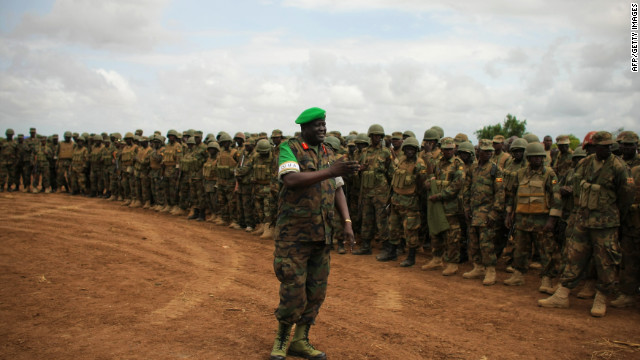A senior Iranian official says the country’s naval forces are actively conducting anti-piracy patrols in the international waters and providing escort to Iranian as well as foreign cargo vessels - PressTV.
Director General of Maritime Affairs at Iran's Ports and Shipping Organization Ali Estiri said on Saturday that Iran will maintain its “powerful presence” in the high seas as long as piracy exists.
Estiri further noted that the issue of piracy has been on the rise in the recent years, especially off the coast of Somalia and in the Indian Ocean. Read more.
Iran has called for collective efforts to fight sea piracy in the world - Bar Kulan.
Iran’s Director-General of Ports and Shipping Organization for Maritime Affairs Ali Estiri said collective efforts by the international community are essential in an all-out fight against piracy.
He said that Iran will maintain its “powerful presence” in the high seas as long as piracy exists, adding the issue of piracy has been on the rise in the recent years, especially off the coast of Somalia.
The Iranian Navy has been conducting anti-piracy patrols in the Gulf of Aden since November 2008, when Somali pirates hijacked the Iranian-chartered cargo ship, MV Delight, off the coast of Yemen.
According to UN Security Council resolutions, different countries can send their warships to the Gulf of Aden and coastal waters of Somalia against the pirates and even with prior notice to Somali government enter the territorial waters of that country in pursuit of Somali sea pirates.
The Gulf of Aden – which links the Indian Ocean with the Suez Canal and the Mediterranean Sea – is an important energy corridor, particularly because Persian Gulf oil is shipped to the West through the Suez Canal.
More than twenty organisations and twenty seven countries were represented at the 24th Shared Awareness and Deconfliction (SHADE) conference - CMF. Delegates included senior personnel from partner navies, law enforcement agencies, the shipping industry and various governments. The meeting, held every three months, focuses on improving cooperation and coordination of the maritime forces operating in the region while considering new initiatives and programs designed to disrupt, and ultimately, prevent, future pirate attacks.
The 24th SHADE meeting was hosted by Combined Maritime Forces (CMF) a professional, capable and alert partnership of 26 nations working together in an apolitical environment to create maritime security and stability in the region. CMF’s Chief of Staff, Capt John Carter, U.S. Navy chaired the event which consisted of a number of presentations and discussions that explored topical, innovative and ongoing initiatives to prevent piracy. Read more.
Leaders of international maritime trade unions have written a letter to the UN, urging the organisation to take action against increasing attacks by pirates on civilian vessels - Zee News.
Somali pirates pose a significant threat in the Gulf of Aden and the Arabian Sea, where they have robbed and seized numerous vessels. Some shipping firms have started hiring armed security personnel to protect their ships.
Nikolai Sukhanov, chairman of the Russian Professional Union of Sailors, said: "Cases of sailors' abductions by pirates continue. Representatives of the fisheries committees with the International Transport Federation voice concern that sailors are still objected to humiliation and injuries as they are abducted by pirates."
"Unfortunately, ransom is still the only guarantee for a safe liberation of sailors, but trade union leaders note that some countries want to prohibit paying ransom," he said.
If payment of ransom for the release of captured sailors is ruled as illegal, it would lead to unpredictable consequences and jeopardize the lives of sailors.
Six African nations are in the top 10 of an annual failed-state index, including Somalia, which heads the list for the fifth straight year after continued struggles with lawlessness and piracy - CNN.
Somalia tops the 2012 Failed States Index because of “widespread lawlessness, ineffective government, terrorism, insurgency, crime, and well-publicized pirate attacks against foreign vessels,” the list’s compiler, Washington-based nonprofit Fund for Peace, said on its website Monday.
The group’s eighth annual list, which ranks instability risks of 177 nations based on 12 social, economic and political indicators, was published Monday by Foreign Policy magazine. Nations ranking high on the list aren’t necessarily failed states, but are facing enormous pressure stemming from factors such as uneven development, economic decline and human-rights issues, according to Fund for Peace. Read the full list HERE.
The Netherlands will boost its military contribution to the NATO force fighting piracy in Somali waters after the country's Parliament approved funding - UPI.com.
The Dutch Parliament voted last week to spend $16.5 million to provide extra personnel, two Cougar helicopters and an unmanned aerial vehicle to join Operation Ocean Shield, in which NATO warships and aircraft have been patrolling the waters off the Horn of Africa.
Also part of the new deployment will be an additional submarine to join the mission in the second half of 2012, Radio Netherlands reported. Read more.